Portugal is home to many traditional Portuguese festivals that are celebrated in towns and villages across the country. These annual festivals are an integral part of Portuguese culture and heritage, and they draw thousands of locals and tourists alike each year.
In this post, learn what to expect visiting these festivals, and when are they held. This can help you to choose the best time to visit Portugal, if you want to attend any of them.
Though festivals in Lisbon and Porto are the most popular ones, some other cities in Portugal have even larger celebrations and biggest events. From the colorful Carnaval or somber Easter celebrations in the Algarve region to the lively street parties during the Santos Populares, you can find some traditional festivals to attend.
Many of these events are deeply rooted in tradition, with customs and rituals passed down through generations. While they are fun events to visit for us to learn local culture and traditions, these festivals are mostly the chances for the community to unite, mingle and keep their heritage alive.


Traditional Portuguese Festivals: guide to best festivals
Hello, I’m Tatiana. I’m hopelessly in love with old uniquely looking buildings, and cozy urban scenes, and finding best places in Europe to go.
Let's connect on social media!
Famous Festivals in Portugal
There are a few major festival in Portugal that are particularly popular. Here are the best festivals :
February: CarnivalApril/May: Holy Week
May: Fatima PilgrimageMay: Festa das Cruzes, Barcelos
June 12th: Festa de Santo António (Festival of Sardines)June 23rd: Festa de São João do Porto, or Saint John the Baptist festival
July: Festa do Colete Encarnado
August: Festa da Sé.August: Medieval Santa Maria da Fiera festival.
October: Sintra Festival
November: All Saints' Day (Dia de Todos-os-Santos)
November: Feira Nacional do Cavalo Golegã
December: Feast of the Immaculate Conception (Imaculada Conceição)
December: Christmas markets all over Portugal, with Algarve's Vila Vita Parc resort in Porches being the most interesting.
Below are short descriptions of these festivals.
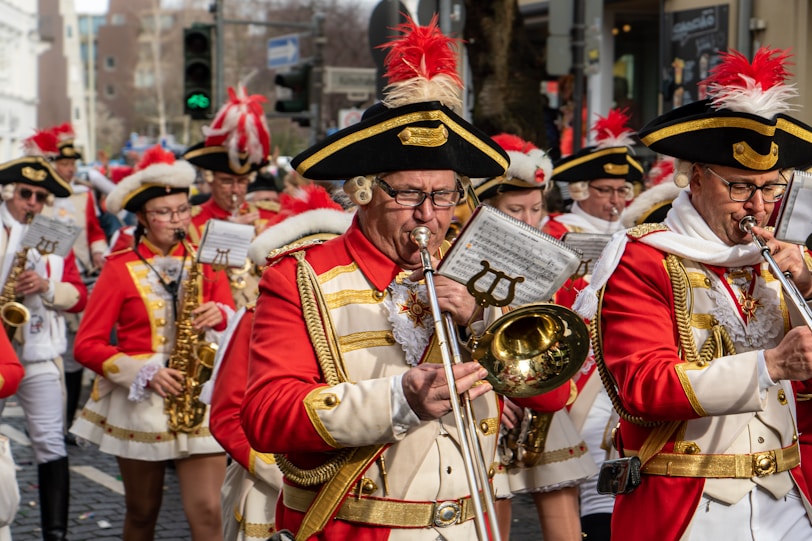
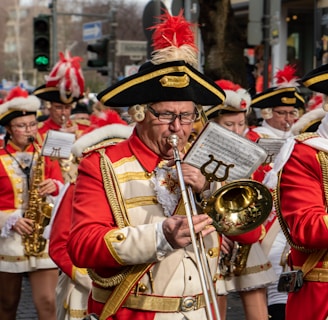
Carnaval, also known as Carnival or Mardi Gras, is the largest festival in Portugal. This is also the best festival to join. This traditional and cultural festival is celebrated all over Portugal. You will find street parties, street parades, street entertainment, delicious food and colorful costumes. (February, before the Lent starts).
Carnival is the most popular celebration in Portugal.
Semana Santa (Holy Week) - Celebrated throughout Portugal with religious processions and ceremonies. This festival is the the biggest celebration in religiose circles.
Some of the most famous celebrations take place in Braga, Guimarães, and Tomar. (April/May)
Fatima Pilgrimage - A pilgrimage held in May.
The Festas do Senhor Santo Cristo dos Milagres (during the fifth Sunday after Easter) is an annual religious festival that takes place in Ponta Delgada ( usually around May). Don't miss this festival if you are in the Azores.
Festival of Sardines - (June 12th). It's more popular name is festa de Santo António - Held in Lisbon in June and celebrates the city's patron saint with street parties, parades, and the traditional grilling of sardines. Santo Antonio is one of the popular Saints that are celebrated during this time. There are also saint Matthew and Saint John's celebrations. Read about popular Saint's celebrations in Lisbon in my other post.
Festa de São João do Porto (Saint Anthony's Festival) - Takes place on the night of June 23rd in Porto and is marked by street parties, bonfires, and the traditional hitting of plastic hammers on people's heads. The tradition has started in the 16th century.


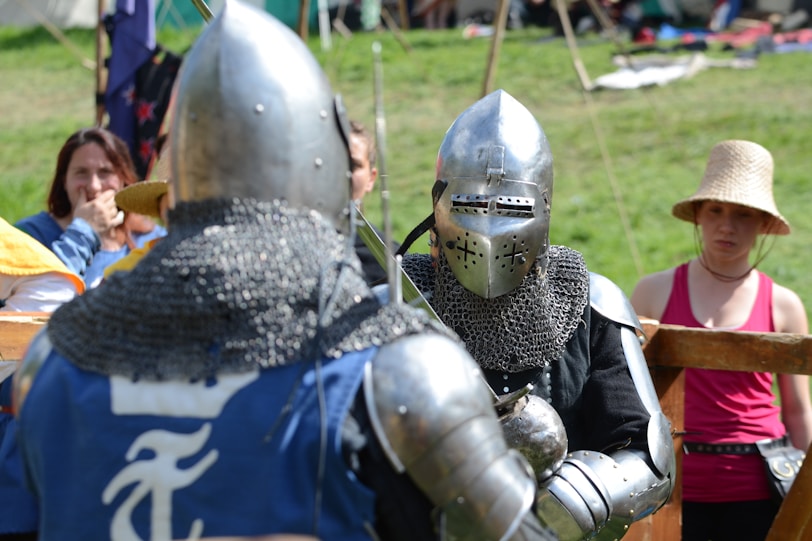
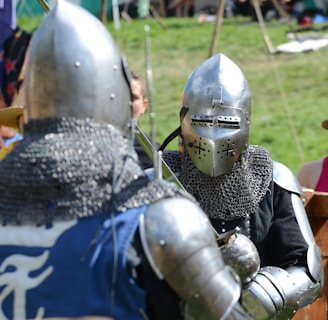
Medieval Santa Maria da Fiera festival (Viagem Medieval em Terras de Santa Maria). This is a very fun event! Watch how Santa Maria da Feira, a small city near Porto, transforms into a medieval town. This Portuguese city's historical center comes alive with the spirit of the past. It's like stepping into a medieval fair, filled with all kinds of interesting characters.
Don't miss this event! Here is the Medieval Santa Maria da Fiera festival's website.
Festa dos Tabuleiros (July). Every four years the ancient town of Tomar holds a special event called the Festa dos Tabuleiros, which is also known as the Festival of the Trays or the Feast of the Holy Spirit.
Festa da Sé (Feast of the Cathedral) - Takes place in Évora in August and celebrates the city's cathedral with food, Portuguese music, and religious processions.
In Vila Franca de Xira Estoril, there is a very famous classical music festival that happens in July and August. It's one of the music festivals in Portugal, with Rock in Rio festival (in Lisbon), being the largest one.
Sintra Festival - (October). The festival happens in Sintra, Portugal. It is all about showing different kinds of movies from many countries. They feature independent and arthouse films that come in lots of different genres, styles, and formats. And if you get tired from watching movies, you can visit Sintra's palaces. This palace is my favorite palace in Sintra.
Feast of the Immaculate Conception. The feast of the Immaculate Conception, known as Imaculada Conceição, is a religious festival. It is a day when Christian believers honor the belief that Mary, the mother of Jesus, was conceived without original sin. This feast is observed on December 8th each year.
During this feast, believers gather in churches and participate in special Mass services dedicated to Mary. They offer prayers and hymns, expressing their belief in her immaculate conception. It is also a time when families come together to share meals and enjoy the festive spirit of the occasion.
The Festa do Colete Encarnado, also known as the Festival of the Red Waistcoat, is a fun three-day celebration. It gets its name from the bright red waistcoats worn by the campinos, who are like cowboys or bullfighters. The festival kicks off with a lively parade that honors the campinos in the city center and throughout the streets.
These are very unique festivities. Watch unmarried young men taking center stage as they organize and participate in various activities. You'll see them visiting houses, attending masses, collecting contributions, dancing, and telling Christmas tales.
The festival is held in different villages with different names but with similar traditions. The young men gather at a designated house, prepare meals, and get ready for the festivities. You'll see the young men dress up as devils and collect contributions from locals. That's why this festival is also known as the Festa dos Caretos (Masked Devils´ Festival).
The festival ends with physical competitions to determine the next year's organizers.
Independence day. On December 1, the people of Lisbon commemorate Restoration of Independence Day. This special day is celebrated with a parade along Lisbon's Avenida da Liberdade.
These are just a few of the many traditional festivals in Portugal. Each region and town has its own unique celebrations and traditions, making the country a vibrant and exciting place to visit throughout the year.
There are other cities in Portugal , besides Lisbon and Porto, that are known for their traditional festivals.
Cities in Portugal known for their traditional festivals
Apart from Lisbon and Porto, several other cities in Portugal are known for their traditional festivals:
Nazaré, Torres Vedras, and towns in the Algarve area: Loulé, Albufeira, Faro, and Portimão. These towns are known for its Carnival, or Mardi Gras, traditional celebrations, with lively street parties, parades, costumes and street parties.
Évora - Famous for the Festa da Sé (Feast of the Cathedral), which celebrates the city's cathedral with food, classical music, and religious processions.
Olhao, Braga, Tomar and Guimarães - Known for its Semana Santa (Holy Week) celebrations, with elaborate religious processions and ceremonies.
These are just a few examples of cities in Portugal with traditional festivals. Each region and town has its own unique celebrations and traditions, making the country a vibrant and exciting place to visit throughout the year.


Beautiful and wide Avenida da Liberdade where many events and demonstrations hold place
Carnival celebrations in Nazaré, Loulé and Torres Vedras, Albufeira, Faro, and Portimão.
Nazaré, Loulé, and Torres Vedras are three cities in Portugal that are known for their carnival celebrations. These celebrations are lively and festive, with street parties, parades, costumes, and music.
Carnaval
Carnaval, also known as Carnival or Mardi Gras in Portugal, is a vibrant traditional festival held throughout the country, with Lisbon and the Algarve region being particularly famous for their spectacular parades and festivities.
The roots of Carnaval in Portugal can be traced back centuries, originally serving as a way for people to enjoy forbidden meat before the fasting during the Lenten season. This is sort of the last breath before diving in.
The celebrations begin on the last Friday before Lent and end on Shrove Tuesday, marking the start of the Easter fasting season.
During Carnaval, Portugal comes alive with colorful processions, lively music, and dancing on the streets.
One of the Carnaval traditions is the use of masks and costumes. This helps people to let loose and be someone else for a day, which is always fun!
During Carnaval, towns and cities in Portugal host cultural events like concerts, theater performances, and art exhibitions. In some places, you can see traditional folk dances and performances, which is always fun.
Food is also a highlight of Carnaval in Portugal. Street vendors and restaurants serve traditional dishes like such as grilled sardines and Pastéis de Bacalhau and sweet treats like Malasadas (Portuguese doughnuts).
Don't miss this street parties. You will find here people of all ages that come together to dance, sing, and enjoy traditional Portuguese food and drink.
In Lisbon, the Carnaval parade is a highlight of the festivities, with uniquely custom decorated floats and participants in beautiful costumes marching through the streets.
Carnaval in Loulé
In Loulé, Algarve, you can find one of the best Carnaval celebrations in Portugal, featuring elaborate parades, lively music, beautiful costumes, cultural events, street parties, and traditional folk performances.
The celebrations are also known for their lively and upbeat music, with samba, marchinhas (Carnival marches), and other popular styles.
Carnaval in Nazaré
In Nazaré, the carnival celebrations often feature a parade of fishermen dressed in traditional clothing, carrying lanterns and dancing to the beat of drums. In Loulé, the carnival is known for its vibrant and creative costumes, while in Torres Vedras, the celebrations often include a parade of decorated cars and trucks.
Other towns in the Algarve with notable Carnaval celebrations include Albufeira, Faro, and Portimão.
Carnival festival in Portugal is fun and a great way for people to keep traditions and heritage.
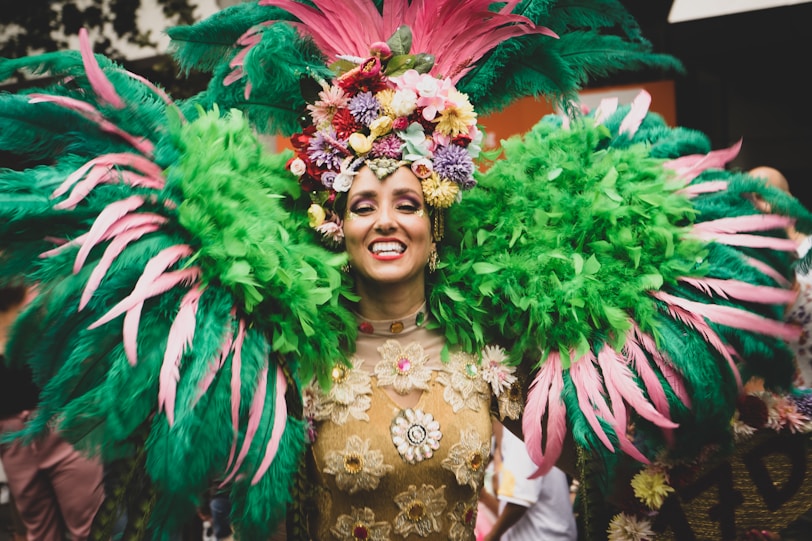
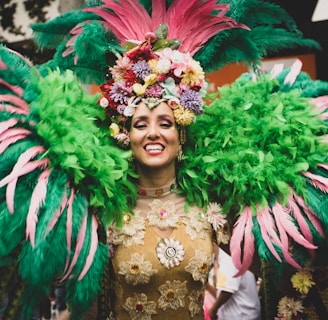
Semana Santa in Olhao
Semana Santa is taken seriously in Olhao (the Algarve), in the same way as the described above festivities in Guimarães .
Here is a beautiful Good Friday night procession in Olhao. I will post a video of it soon, as music is crucial for experiencing this. Surprisingly, the music wasn't somber, it was beautiful Portuguese traditional music and very special.
I was very lucky and I had a front row view from my balcony. The view really just couldn’t be any better, and made this a very special event! And if you are wondering how I was able to get this wonderful place to stay, read my post on interesting places to stay. This was, actually, a private room in a hostel, and I just couldn't be happier with my choice!
Semana Santa in Braga
The Holy Week in Braga is a special event that happens in Braga, Portugal. It is a big deal in the city and attracts a lot of tourists. The event combines religious traditions and new ideas.
It is organized by different groups like the Cathedral Chapter, the brotherhoods of Mercy and Holy Cross, the City Council of Braga, and tourism organizations.
Leading up to the event, there are various activities for spiritual preparation, like Mass and the imposition of Ashes at the Cathedral.
There are also Lenten conferences and Stations of the Cross. During the Holy Week, there is a procession and a penitential celebration.
The Holy Week in Braga has been around for a long time and its history goes back to the 4th century. It has changed over the years, but it still holds on to its traditions.


I was watching Good Friday procession in Olhao in front of Igreja Paroquial de Olhão / Igreja de Nossa Senhora do Rosário, from my 3rd floor balcony. The ceremony was held right under my balcony.
Festa da Sé (Feast of the Cathedral) in Evora
The Festa da Sé, also known as the Feast of the Cathedral, is an annual event that takes place in Évora, Portugal, in August. The festival celebrates the city's cathedral, the Sé de Évora, which is one of the most important religious buildings in the country.
The festival begins with a solemn mass at the cathedral, followed by a procession through the streets of the city. The procession features religious floats, local bands, and participants dressed in traditional clothing.
In addition to the religious events, the Festa da Sé also features a variety of cultural and entertainment activities, such as concerts, dance performances, and theater shows. There are also stalls selling traditional food and drink, as well as local handicrafts.
One of the highlights of the festival is the "Cortejo dos Arcebispos," a parade of people dressed as bishops and archbishops who have held office in the city. The parade is a colorful and lively event, with participants wearing elaborate costumes and wigs.
The Festa da Sé is an important event in Évora's life and an interesting event to attend!
So, as you can see, there are many traditional Portuguese festivals, and they are celebrated all over the Portugal!
If you want to atend any of these festivals, research the schedule. Here is my schedule for 2023-2024 Festivals in Lisbon.
I hope this information was useful to you!
Let's connect on social media: the links are below in the footer. Maybe you can tell me about your own experience visiting one of the Portuguese festivals!


The magnificent architecture of Evora Cathedral - the most important religious building in Portugal

Let's connect on social media!
If you would like to support my work and this website maintenance cost, that would be greatly appreciated! Thank you!
Subscribe to my periodic newsletter and never miss my latest post


Hi, I am Tatiana—a digital nomad, slow traveling around Europe and beyond. Do you like my rooftop mobile office in front of the beautiful church and a storks' nest on its roof? That was such an awesome experience!:) Follow my travel explorations on Alonga Travel and unique findings to learn of places like this!
Copyright © Alonga Travel 2024




